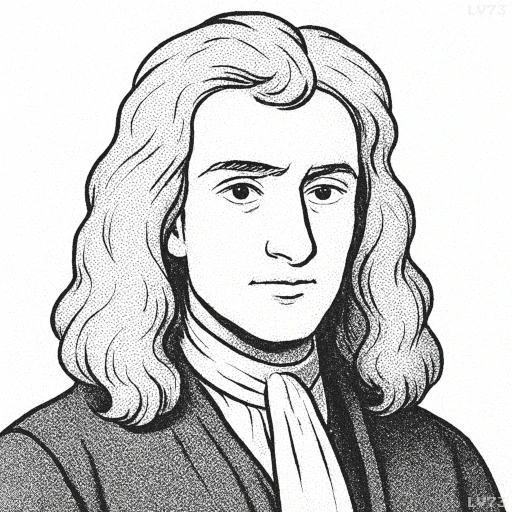“The motions of the comets are exceedingly regular, and they observe the same laws as the motions of the planets, but they differ from the motions of vortices in every particular and are often contrary to them.”

- January 4, 1643 – March 31, 1727
- Born in England (UK)
- Natural philosopher, mathematician, physicist, astronomer, theologian
table of contents
Quote
“The motions of the comets are exceedingly regular, and they observe the same laws as the motions of the planets, but they differ from the motions of vortices in every particular and are often contrary to them.”
Explanation
In this quote, Isaac Newton is discussing the motion of comets and their behavior in relation to other celestial bodies, particularly in contrast to the vortex theory of planetary motion. Newton acknowledges that the motions of comets are regular and follow the same laws of motion that govern the planets, specifically the laws of gravitation. He argues that these motions are consistent with the principles he laid out in his theory of universal gravitation, which explains how objects with mass exert gravitational forces on each other, resulting in predictable orbits. However, he points out that comets differ from the theoretical motion of the vortices, a now-outdated idea that was once proposed by René Descartes to explain the motion of the planets and other celestial bodies. Unlike vortices, which were thought to involve complex swirling motions that could account for planetary motion, comets’ orbits defy these explanations, showing instead that they are governed by gravity in a similar way to the planets.
Newton’s comment is significant because it highlights his rejection of earlier, non-gravitational models of the universe, particularly the vortex theory, which suggested that celestial bodies were carried along by a kind of fluid medium. Newton’s work on gravity and planetary motion, which was developed in the 17th century, provided a mathematical and physical framework for understanding the universe based on universal laws. The discovery that comets follow the same laws as the planets was an important confirmation of his theory and further solidified the idea that the universe operates under a set of universal principles, rather than being influenced by separate, localized forces.
In modern astronomy, Newton’s understanding of cometary motion is still foundational. We now know that comets, like planets, follow elliptical orbits governed by the gravitational attraction of the Sun, and their paths are predictable based on Kepler’s laws of planetary motion and Newton’s law of gravitation. The study of cometary orbits has allowed scientists to better understand the dynamics of the solar system and the interactions between different celestial bodies. Newton’s insight into the regularity of cometary motion helped move the scientific community beyond speculative theories like vortex motion, advancing our understanding of the universal laws that govern the cosmos.
Would you like to share your impressions or related stories about this quote in the comments section?
